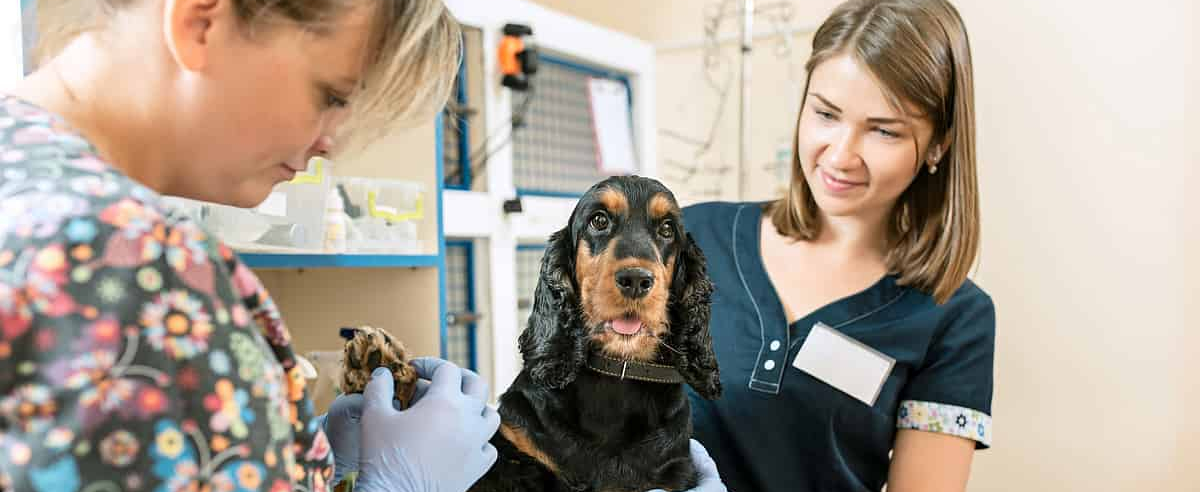Admission to science, technology, engineering, and math (STEM) programs has become increasingly competitive, so it’s important to do your homework when it comes to identifying programs that meet your academic and career goals. We’ve covered other schools for various STEM programs previously, but one STEM major or track that frequently flies under students’ radars is veterinary medicine.
While much of veterinary medicine is taught in veterinary school post-undergrad, there are several undergraduate animal science and pre-veterinary programs that can put you on track for graduate admissions from day one of your undergraduate program.
Here’s Dr. Kat’s list of colleges for aspiring veterinarians.
University of Massachusetts Amherst: Amherst, MA
While many schools just provide a pre-veterinary program as an undergraduate track with a more specific major, the University of Massachusetts Amherst is one of the few universities to offer a true pre-veterinary major for undergraduates. Students in the Department of Veterinary and Animal Science can choose between three Bachelor of Science degree programs: animal science, veterinary technology, and pre-veterinary.
All pre-vet hopefuls enter as animal science majors and can switch to the pre-vet program after qualifying. Students can participate in research opportunities, and the school is helps place students in relevant internships.
What makes the pre-vet program at UMass Amherst progressive is its partnership with the Tufts University Cummings School of Veterinary Medicine located in Grafton, MA. UMass Amherst pre-vet students can apply to the Tufts graduate program in March of their sophomore year. If admitted, students who maintain a 3.4 GPA and complete the prerequisite courses are guaranteed a spot in Tufts’ vet school upon graduation.
University of Wisconsin-Eau Claire: Eau Claire, WI
Students at the University of Wisconsin-Eau Claire who are interested in becoming veterinarians can enroll in the pre-veterinary medicine program, which is separate from their major. Most students in the program major in biology or another science and enter the pre-veterinary medicine program through the Health Careers Center, which provides advising, targeted programming, and clinical and volunteering opportunities.
The program allows students to gain hands-on experience with animals as they complete the prerequisites for veterinary school. UWEC also has a pre-vet club — not only to connect students with each other — but to receive feedback on their veterinary school applications and learn from veterinarians.
The acceptance rate of UWEC graduates to veterinary school programs is above the national average, making this a great choice for future veterinarians.
Maryville College: Maryville, TN
Nestled in the Great Smoky Mountains, Maryville College offers two pathways for students hoping to get into veterinary school. Students can complete the Pre-Vet/D.V.M. program, which consists of three years at Maryville pursuing a B.S. in Biological Sciences with a pre-veterinary sciences track, followed by a four-year D.V.M. program at the University of Tennessee College of Veterinary Medicine. Students in this program complete their B.S. while in veterinary school.
Students can also take the more traditional path, completing a four-year program — typically as a biochemistry or biology major — on the pre-veterinary sciences track. Students are encouraged to gain hands-on experience at local veterinary clinics during their program. Upon graduation, students are well prepared for veterinary school due to the rigorous curriculum, research opportunities, and collaborative work with faculty.
University of Minnesota Twin Cities, Crookston, and Morris Campuses
The University of Minnesota Twin Cities, University of Minnesota Crookston, and University of Minnesota Morris offer the Veterinary Food Animal Scholars Track (VetFAST) program for students interested in working with milk cows, swine, beef cattle, poultry, and other food animals. The VetFAST program allows students to complete a B.S. and D.V.M. in seven years. During that time, students participate in mentorships and have access to summer work opportunities.
To maintain eligibility for admission to UMN’s College of Veterinary Medicine, students must maintain a cumulative GPA of 3.4 or higher, complete the required pre-veterinary coursework, continue taking animal production courses, and participate in relevant activities. Students at the Twin Cities and Crookston campuses must major in animal science, while students at the Morris campus major in biology.
Hollins University: Roanoke, VA
The pre-vet program at Hollins University combines the benefits of a small college with the research resources of a major university. Hollins is one of the oldest higher education institutions for women in the U.S. Students interested in the research-intensive pre-vet track also gain exposure to a wide variety of liberal arts courses.
The pre-vet program at Hollins is known for its hands-on approach to learning and research. Students take advantage of January Short Term, summer internships, collaborative experiments, and research with faculty to gain relevant experience that will prepare them for veterinary school. Additionally, pre-vet students can spend a semester studying horses at the University of Limerick in Ireland.
Veterinary medicine is an intensive program that requires a lot of post-graduate education, but getting on the right track during your undergraduate years can set you up for success when it comes time to apply to veterinary school. Other programs with great pre-veterinary programs and majors for undergraduates include Stanford University, University of Cincinnati, University of Maryland, and North Carolina State University.
If you are interested in applying to a pre-professional program or other related STEM major, our team of expert counselors can help you identify extracurriculars, internships, and other activities that you can be doing now to set yourself apart during application season. Contact us today for more information.




